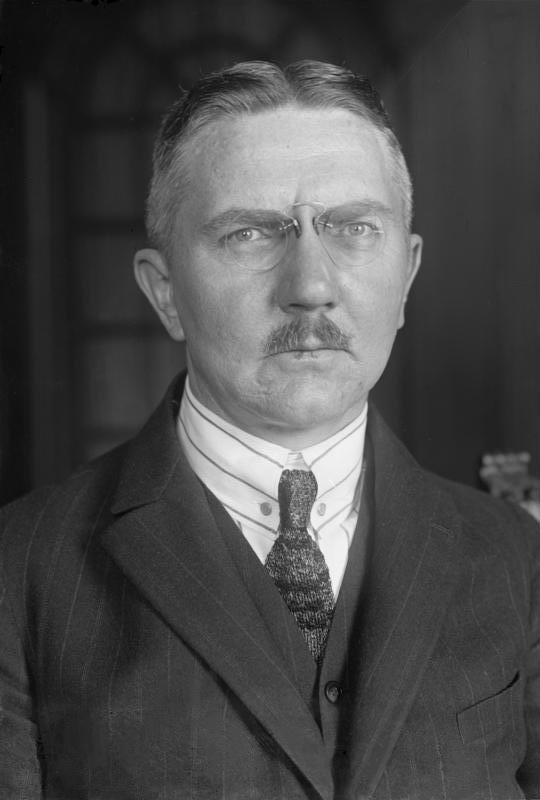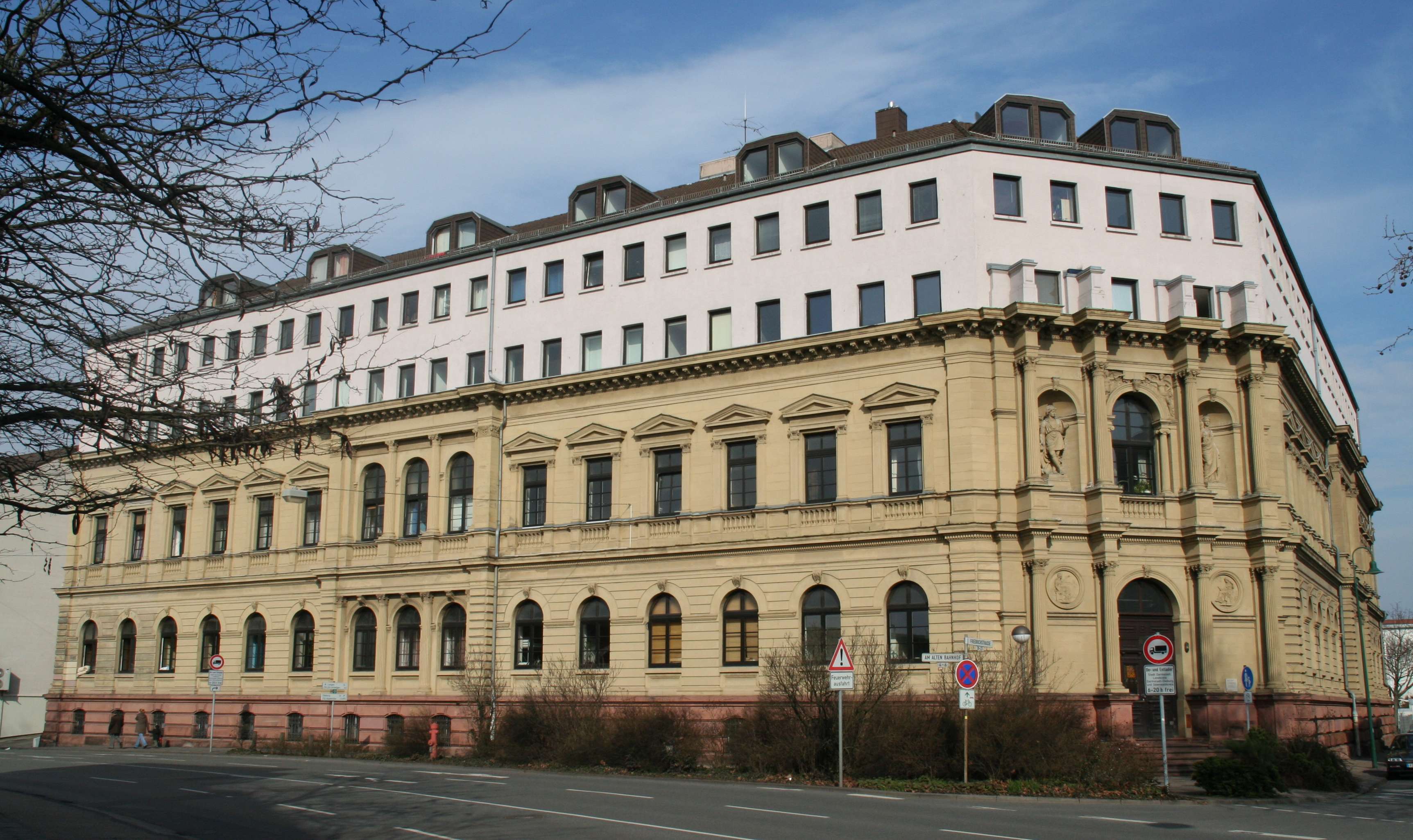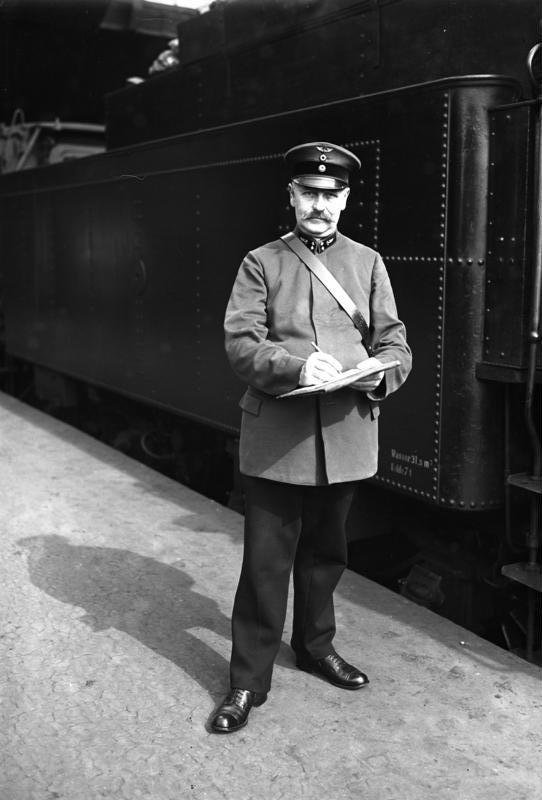|
Carl Bergmann (Secretary Of State)
Carl Bergmann (20 April 1874 in Sömmerda; died 26 September 1935 in Berlin) was a German banker and diplomat. Biography After studying law, which he finished with the doctorate, he became in 1900 Gerichtsassessor in Berlin before he changed the following year to the Deutsche Bank. From this bank he was sent from 1901 to 1902 to Konstantinopel for the management of the Chemins de Fer Ottomans d'Anatolie. 1911 he was appointed deputy director of the Deutsche Bank. 1914-1918 he worked as a financial delegate at the German Embassy in The Hague. After the end of World War I he was since 1919 representative of the German Reich in the reparations talks in Paris. In July 1919 he was next to Stephan Moesle undersecretary in the Finance Ministry and also chairman of the war load commission. He held until September 1921 these offices and was thus one of the closest collaborators of the Ministers of Finance Matthias Erzberger and Joseph Wirth. He then returned to Deutsche Ban ... [...More Info...] [...Related Items...] OR: [Wikipedia] [Google] [Baidu] |
Sömmerda
Sömmerda is a town near Erfurt in Thuringia, Germany, on the Unstrut river. It is the capital of the Sömmerda (district), district of Sömmerda. History Archeological digs in the area that is now Sömmerda, formerly Leubingen, have uncovered prominently buried human remains dating to around 2000 BCE. One such burial of an individual, dubbed the "king of Leubingen" is the Leubingen tumulus. Sömmerda was first mentioned in official documents in 876 CE. It probably became a town in about 1350 but there are no existing records of the event. One town gate, dating from 1395, and six towers from the old town walls are still standing. During the Thirty Years' War (1618–1648) Sömmerda was at the heart of military activity, and soldiers from both sides ransacked the town, halving the population. In 1840, Johann Nikolaus von Dreyse invented the needle gun and a firearms factory was founded in the town. In 1919 the Rheinmetall company took over the factory, later called Rheinmetall ... [...More Info...] [...Related Items...] OR: [Wikipedia] [Google] [Baidu] |
Board Of Directors
A board of directors (commonly referred simply as the board) is an executive committee that jointly supervises the activities of an organization, which can be either a for-profit or a nonprofit organization such as a business, nonprofit organization, or a government agency. The powers, duties, and responsibilities of a board of directors are determined by government regulations (including the jurisdiction's corporate law) and the organization's own constitution and by-laws. These authorities may specify the number of members of the board, how they are to be chosen, and how often they are to meet. In an organization with voting members, the board is accountable to, and may be subordinate to, the organization's full membership, which usually elect the members of the board. In a stock corporation, non-executive directors are elected by the shareholders, and the board has ultimate responsibility for the management of the corporation. In nations with codetermination (such as Germ ... [...More Info...] [...Related Items...] OR: [Wikipedia] [Google] [Baidu] |
1874 Births
Events January–March * January 1 – New York City annexes The Bronx. * January 2 – Ignacio María González becomes head of state of the Dominican Republic for the first time. * January 3 – Third Carlist War – Battle of Caspe: Campaigning on the Ebro in Aragon for the Spanish Republican Government, Colonel Eulogio Despujol surprises a Carlist force under Manuel Marco de Bello at Caspe, northeast of Alcañiz. In a brilliant action the Carlists are routed, losing 200 prisoners and 80 horses, while Despujol is promoted to Brigadier and becomes Conde de Caspe. * January 20 – The Pangkor Treaty (also known as the Pangkor Engagement), by which the British extended their control over first the Sultanate of Perak, and later the other independent Malay States, is signed. * January 23 **Alfred, Duke of Saxe-Coburg and Gotha, Prince Alfred, Duke of Edinburgh, second son of Queen Victoria, marries Grand Duchess Maria Alexandrovna of Russia, only daug ... [...More Info...] [...Related Items...] OR: [Wikipedia] [Google] [Baidu] |
German Diplomats
German(s) may refer to: * Germany (of or related to) **Germania (historical use) * Germans, citizens of Germany, people of German ancestry, or native speakers of the German language ** For citizens of Germany, see also German nationality law **Germanic peoples (Roman times) * German language **any of the Germanic languages * German cuisine, traditional foods of Germany People * German (given name) * German (surname) * Germán, a Spanish name Places * German (parish), Isle of Man * German, Albania, or Gërmej * German, Bulgaria * German, Iran * German, North Macedonia * German, New York, U.S. * Agios Germanos, Greece Other uses * German (mythology), a South Slavic mythological being * Germans (band), a Canadian rock band * "German" (song), a 2019 song by No Money Enterprise * ''The German'', a 2008 short film * "The Germans", an episode of ''Fawlty Towers'' * ''The German'', a nickname for Congolese rebel André Kisase Ngandu See also * Germanic (other) * Germa ... [...More Info...] [...Related Items...] OR: [Wikipedia] [Google] [Baidu] |
German Bankers
German(s) may refer to: * Germany (of or related to) **Germania (historical use) * Germans, citizens of Germany, people of German ancestry, or native speakers of the German language ** For citizens of Germany, see also German nationality law **Germanic peoples (Roman times) * German language **any of the Germanic languages * German cuisine, traditional foods of Germany People * German (given name) * German (surname) * Germán, a Spanish name Places * German (parish), Isle of Man * German, Albania, or Gërmej * German, Bulgaria * German, Iran * German, North Macedonia * German, New York, U.S. * Agios Germanos, Greece Other uses * German (mythology), a South Slavic mythological being * Germans (band), a Canadian rock band * "German" (song), a 2019 song by No Money Enterprise * ''The German'', a 2008 short film * "The Germans", an episode of ''Fawlty Towers'' * ''The German'', a nickname for Congolese rebel André Kisase Ngandu See also * Germanic (other) * Germa ... [...More Info...] [...Related Items...] OR: [Wikipedia] [Google] [Baidu] |
Weimar Republic Politicians
Weimar is a city in the state of Thuringia, Germany. It is located in Central Germany between Erfurt in the west and Jena in the east, approximately southwest of Leipzig, north of Nuremberg and west of Dresden. Together with the neighbouring cities of Erfurt and Jena, it forms the central metropolitan area of Thuringia, with approximately 500,000 inhabitants. The city itself has a population of 65,000. Weimar is well known because of its large cultural heritage and its importance in German history. The city was a focal point of the German Enlightenment and home of the leading figures of the literary genre of Weimar Classicism, writers Johann Wolfgang von Goethe and Friedrich Schiller. In the 19th century, noted composers such as Franz Liszt made Weimar a music centre. Later, artists and architects such as Henry van de Velde, Wassily Kandinsky, Paul Klee, Lyonel Feininger, and Walter Gropius came to the city and founded the Bauhaus movement, the most important German design ... [...More Info...] [...Related Items...] OR: [Wikipedia] [Google] [Baidu] |
Time (magazine)
''Time'' (stylized in all caps) is an American news magazine based in New York City. For nearly a century, it was published Weekly newspaper, weekly, but starting in March 2020 it transitioned to every other week. It was first published in New York City on March 3, 1923, and for many years it was run by its influential co-founder, Henry Luce. A European edition (''Time Europe'', formerly known as ''Time Atlantic'') is published in London and also covers the Middle East, Africa, and, since 2003, Latin America. An Asian edition (''Time Asia'') is based in Hong Kong. The South Pacific edition, which covers Australia, New Zealand, and the Pacific Islands, is based in Sydney. Since 2018, ''Time'' has been published by Time USA, LLC, owned by Marc Benioff, who acquired it from Meredith Corporation. History ''Time'' has been based in New York City since its first issue published on March 3, 1923, by Briton Hadden and Henry Luce. It was the first weekly news magazine in the United St ... [...More Info...] [...Related Items...] OR: [Wikipedia] [Google] [Baidu] |
Foreign Affairs
''Foreign Affairs'' is an American magazine of international relations and U.S. foreign policy published by the Council on Foreign Relations, a nonprofit, nonpartisan, membership organization and think tank specializing in U.S. foreign policy and international affairs. Founded on 15 September 1922, the print magazine is currently published every two months, while the website publishes articles daily and anthologies every other month. ''Foreign Affairs'' is considered one of the United States' most influential foreign policy magazines. Over its long history, the magazine has published a number of seminal articles including George Kennan's "X Article", published in 1947, and Samuel P. Huntington's " The Clash of Civilizations," published in 1993. Important academics, public officials, and policy leaders regularly appear in the magazine's pages. Recent ''Foreign Affairs'' authors include Robert O. Keohane, Hillary Clinton, Donald H. Rumsfeld, Ashton Carter, Colin L. Powell, Franci ... [...More Info...] [...Related Items...] OR: [Wikipedia] [Google] [Baidu] |
Hjalmar Schacht
Hjalmar Schacht (born Horace Greeley Hjalmar Schacht; 22 January 1877 – 3 June 1970, ) was a German economist, banker, centre-right politician, and co-founder in 1918 of the German Democratic Party. He served as the Currency Commissioner and President of the Reichsbank under the Weimar Republic. He was a fierce critic of his country's post-World War I reparations obligations. He served in Adolf Hitler's government as President of the Central Bank (''Reichsbank'') 1933–1939 and as Minister of Economics (August 1934 – November 1937). While Schacht was for a time feted for his role in the German "economic miracle", he opposed elements of Hitler's policy of German re-armament insofar as it violated the Treaty of Versailles and (in his view) disrupted the German economy. His views in this regard led Schacht to clash with Hitler and most notably with Hermann Göring. He resigned as President of the Reichsbank in January 1939. He remained as a Minister-without-portfolio, and ... [...More Info...] [...Related Items...] OR: [Wikipedia] [Google] [Baidu] |
John Maynard Keynes
John Maynard Keynes, 1st Baron Keynes, ( ; 5 June 1883 – 21 April 1946), was an English economist whose ideas fundamentally changed the theory and practice of macroeconomics and the economic policies of governments. Originally trained in mathematics, he built on and greatly refined earlier work on the causes of business cycles. One of the most influential economists of the 20th century, he produced writings that are the basis for the school of thought known as Keynesian economics, and its various offshoots. His ideas, reformulated as New Keynesianism, are fundamental to mainstream macroeconomics. Keynes's intellect was evident early in life; in 1902, he gained admittance to the competitive mathematics program at King's College at the University of Cambridge. During the Great Depression of the 1930s, Keynes spearheaded a revolution in economic thinking, challenging the ideas of neoclassical economics that held that free markets would, in the short to medium term, a ... [...More Info...] [...Related Items...] OR: [Wikipedia] [Google] [Baidu] |
Danatbank
The Darmstädter und Nationalbank (short form Danat-Bank) was a German bank. History The Darmstädter und Nationalbank was formed in 1922 from the merger of the Bank für Handel und Industrie (Darmstadt) and the Nationalbank für Deutschland. The ''Darmstädter Bank für Handel und Industrie'' (often called ''Darmstädter Bank'') was founded as the ''Bank für Handel und Industrie'' by Gustav von Mevissen and Abraham Oppenheim with a capital of 25 million guilders and modelled after the French bank Crédit Mobilier. It received a banking concession on 2 April 1853. downloaded on 1 April 2009 It was thus the second universal bank in Germany founded as a c ... [...More Info...] [...Related Items...] OR: [Wikipedia] [Google] [Baidu] |
Reichsbahn
The ''Deutsche Reichsbahn'', also known as the German National Railway, the German State Railway, German Reich Railway, and the German Imperial Railway, was the German national railway system created after the end of World War I from the regional railways of the individual states of the German Empire. The ''Deutsche Reichsbahn'' has been described as "the largest enterprise in the capitalist world in the years between 1920 and 1932"; nevertheless its importance "arises primarily from the fact that the Reichsbahn was at the center of events in a period of great turmoil in German history". Overview The company was founded on 1 April 1920 as the ("German Imperial Railways") when the Weimar Republic, which still used the nation-state term of the previous monarchy, (German Reich, hence the usage of the in the name of the railway; the monarchical term was ), took national control of the German railways, which had previously been run by the German states. In 1924 it was reorganised ... [...More Info...] [...Related Items...] OR: [Wikipedia] [Google] [Baidu] |








